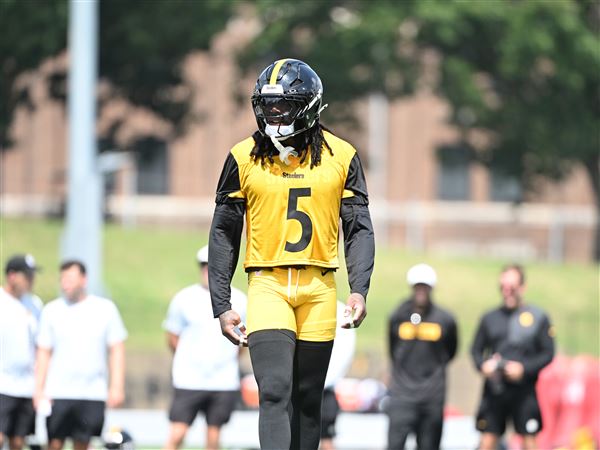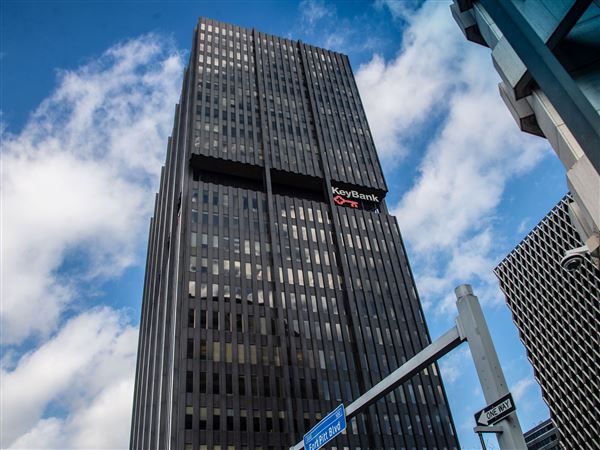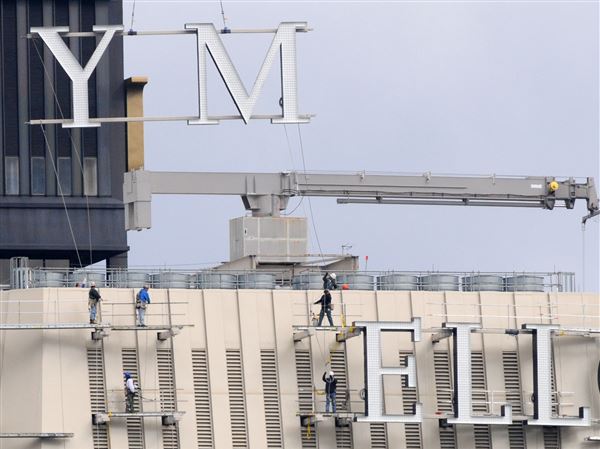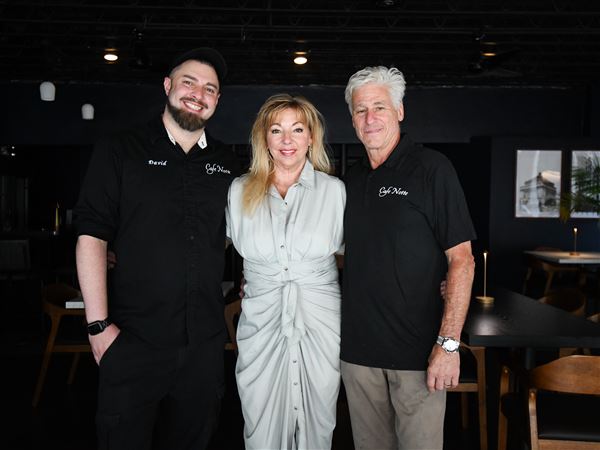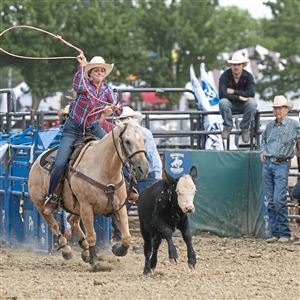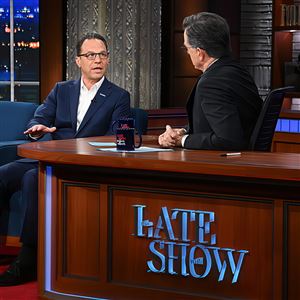Jim Ruby already has started packing his bags for an August trip to Athens, Greece.
Planning ahead is in Ruby's blood. He's also packing for the 500-plus members of the U.S. Olympic Team, their coaches, trainers and support staff.
Ruby, a 1965 graduate of California Area High School and 1969 graduate of California University of Pennsylvania, is associate director of games logistics for the U.S. Olympic Committee.
From an office in Colorado Springs, Colo., he has the responsibility of filling and shipping 24 sea containers of items the athletes and others will need during 16 days of events.
The inventory includes 100,000 pieces of clothing athletes will wear at opening ceremonies and around the city, an Internet cafe for athletes to frequent in the Olympic Village and enough furniture, food, telephone lines and computer equipment to keep a small town humming.
The swimming team is having Ruby ship a canopy that will be used to shield athletes waiting to compete in the open-air pool.
The softball team is having him ship batting cages.
The fencing team is having him send over special floor mats.
The sports-science people sent him sophisticated, sensitive gadgetry.
Ruby is sprinting to the finish line; the Olympics begin Aug. 13.
"I won't be going anywhere until those two dozen sea containers are headed for the East Coast," he said.
Once the games begin, Ruby will wear a different hat, that of director of the USOC operations center.
Ruby's job draws on his love of sports and travel, his innate skills as a troubleshooter and the strong work ethic he learned from his parents. His mother, a homemaker, and father, a machinist at Wheeling-Pittsburgh Steel, told him to approach each job with a champion's enthusiasm.
Like many kids, Ruby played youth baseball and sandlot basketball and football. At Cal U, his connection to sports changed, and he learned the principles of logistics as student manager of the football team.
"He was an honest, dependable, very, very reliable young man," said Joe Dochinez, former California mayor and former director of the university's Student Association Inc. "I knew he would be successful in life."
Ruby, 56, found a mentor in the late Ed "E.P." LaCotta, who packed, cleaned, repaired and transported the football team's equipment.
Dochinez said Ruby learned well from LaCotta, a savvy planner with a knack for repairing raggedy equipment on the fly. And LaCotta had faith in Ruby, Dochinez said; he was the only student to whom LaCotta entrusted keys.
Ruby also worked alongside Bill Clendaniel, another equipment manager. "He was just great," Clendaniel said of Ruby, "and he was as trustworthy as anybody I ever met."
When he wasn't working with the football team, Ruby unknowingly trained for his Olympic work in other ways.
As a work-study student, he set up for concerts and helped create picnic grounds at the "college farm." In some ways, clearing the wooded area isn't much different from creating USOC offices from scratch in a foreign city.
Ruby took a roundabout route to his current job, showing a pentathlon contestant's versatility at each stop along the way.
After graduating with a bachelor's degree in education, Ruby taught in Hancock County, W.Va., schools from 1969 to 1978. After marrying in the summer of 1978, he and his wife, Clare, a Weirton resident, took jobs teaching the children of U.S. and British construction workers in South Korea.
"Both of us were ready for a change," he said.
Upon returning to the United States, the couple decided to settle in Colorado Springs.
They had no ties there, but had heard good things about the area. Also, Ruby had passed through the city more than once on cross-country backpacking trips.
His wife got a teaching job at Fort Carson, a local Army base. Thanks to a notice at the state employment service, Ruby landed an hourly position with the buildings and grounds department at the Colorado Springs Olympic Training Center.
After a couple of months of landscaping, painting and concrete work, Ruby said, he pointed out inefficiencies in the department's purchasing procedures and was made purchasing agent. Within six months, his boss gave him accounting responsibilities, too. Later, he became office manager.
In that role, he honed his skills as a troubleshooter, learning to diagnose printer breakdowns before computer experts arrived. He became so proficient the information-technology department brought him over as a computer operator so he could work on printers and computers throughout the complex.
After that were roles as manager of computer room operations, systems programmer and the operations manager for mailing and copying services. He also established the center's first centralized shipping and receiving facility.
Ruby transferred to the prestigious International Games Division in 2001 and spent the 2002 Winter Olympics in Salt Lake City. There, he helped install special telephone lines to connect USOC officials at the games with their counterparts elsewhere in the country.
Even before that transfer, however, Ruby had been doing field work at the Olympics, Olympic Festivals and Pan-Am and World University games.
In 1988, for example, he returned to South Korea as housing manager in the Olympic Village. At other games, he served as the Olympic Committee's liaison with Xerox, a major supporter of U.S. athletes.
He was promoted to associate director of games logistics -- and handed a weight lifter's burden -- in September 2002.
The items athletes, coaches and committee officials need won't get to Athens unless Ruby's office sends them. And once the games begin, there's no going home for something left behind.
The snazzy outfits athletes wear at opening ceremonies? They're counted by hand before they're packed into shipping containers.
Ruby said he didn't want to have to tell athletes in Athens, "I'm sorry, you can't have that. We ran out."
Ruby is responsible for shipping items used by USOC officials and staff members and much, but not all, of the gear used by athletes. Some teams choose to ship items themselves.
Schenker Stinnes Logistics, a private company and sponsor of U.S. athletes, is helping Ruby ship 24 sea containers to the East Coast and then to Athens. Each sea container is 40 feet long and holds 18 pallets that can be stacked about 7 feet high.
Last week, Ruby learned cargo availability on oceangoing ships forced Schenker to move up the ship date by two days.
No one moves the goalposts on the U.S. soccer team, but Ruby must adjust. He imposes order on chaos, even if visitors get a different impression from his cluttered desk in a warehouse on the east side of Colorado Springs.
In Athens, the days only will get longer. After all, he has to ship everything home.
"Once we hit Greece, there are no weekends," he said. "There are no days off."
First Published: May 16, 2004, 4:00 a.m.
